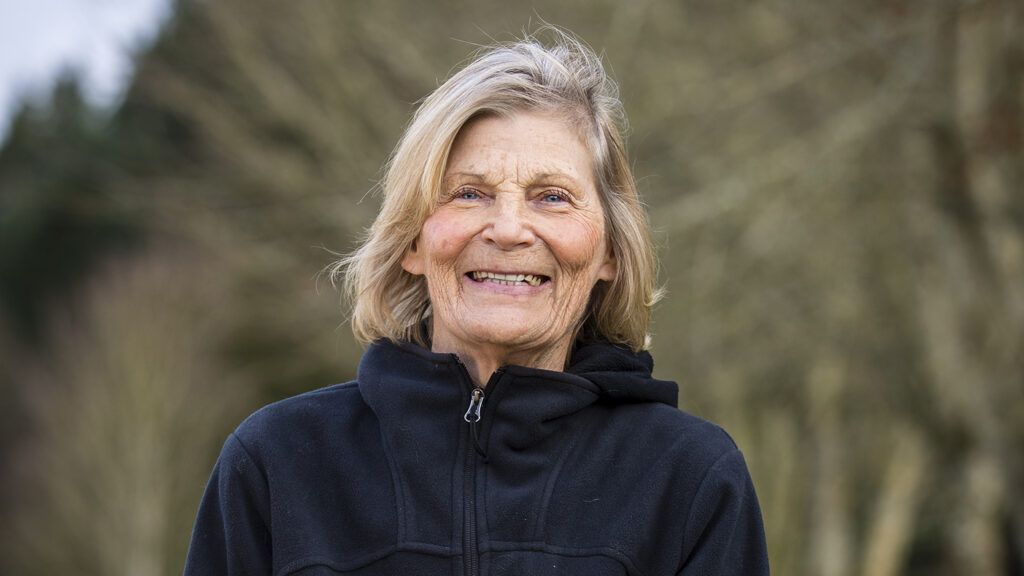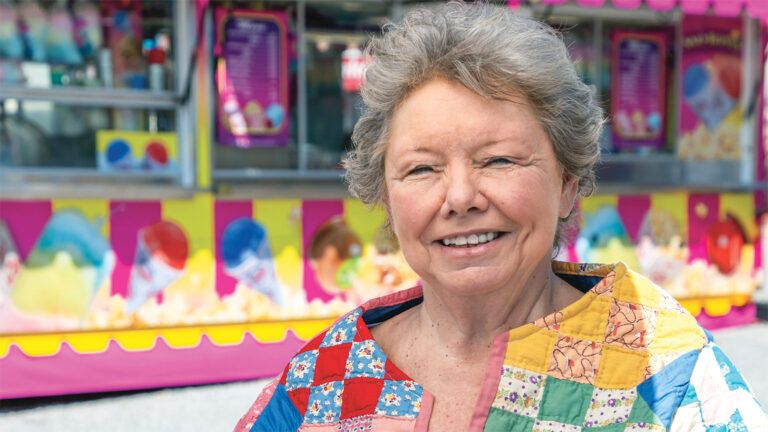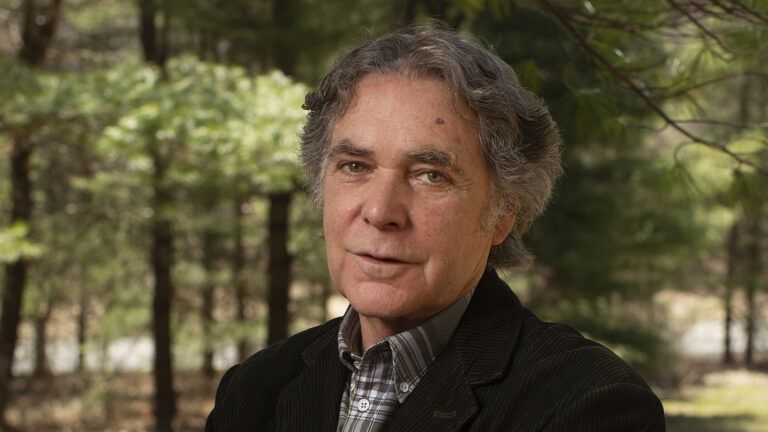My husband, Jim, added another pill to the pile of meds on the kitchen counter. Ever since my release from the hospital two days earlier, he’d kept careful track of which ones I needed to take and when. It was overwhelming, everything I would need to do to recover. And most of it was on me. It’s not as if Jim or anyone else could breathe for me. This is hopeless, I thought. I’m never going to be able to do this.
Just then, my youngest son, Jeremey, walked into our apartment. “What did the doctor say?” he asked. Jim had taken me to a follow-up pulmonologist appointment earlier that morning.
“He wants me to go to pulmonary rehabilitation,” I said, trying to sound more positive than I felt. “It meets two or three times a week about managing COPD, learning to monitor and better control breathing, managing stress and exercising. It sounds great, but with your dad out of work, we just can’t afford it. I asked him if I could do it on my own.”
I’d started smoking when I was 16. I loved everything about it: the nicotine rush, the taste, the feel of a cigarette between my fingers, how smoking kept me slim and especially how social it was, hanging out with other smokers. My parents smoked; so did nearly everyone I knew back then. Jim included. I quit smoking while I was pregnant with each of our four kids, but I always picked it up again afterward.
I started having breathing difficulties, frequent colds, lung infections. No big deal, I told myself. At 41, I was hospitalized with pneumonia. That’s when a doctor told me I had COPD, an incurable, chronic lung disease. I’d shrugged that off too. Until both my parents died from COPD-related causes. Even so, it took me another six years before I was able to quit for good. By then I was landing in the hospital regularly.
I figured I was headed down the same path as my parents. Nothing I could do to stop it. I hated thinking I wouldn’t be there for the kids and grandkids. But God hadn’t saved my parents. I couldn’t imagine him working some miracle for me.
The spring of 2013, I started coughing all the time. I would come home from my job as a night manager at Denny’s, my head swimming from lack of oxygen. One night, I felt so weak I begged God to get me back to our apartment safely. I figured I’d be okay after a few hours with my nebulizer. But the next morning, I collapsed. I was in the hospital a week. The doctors told Jim I wasn’t going to make it, but I’d pulled through—barely. At 58, I felt more like 88.
The pulmonologist’s words from this morning rang in my ears. “This is serious. You need to be in a treatment program. Immediately.” I’d meant what I said about doing a program on my own. But I had no idea where to begin. Just walking across a room made me feel as if the wind had been knocked out of me.
There in the kitchen, my son looked at me, his eyes pleading. “Let me help you,” Jeremey said. “Tomorrow before you leave for your shift, we’ll go down to the fitness room.” Our apartment complex had a fitness room, where Jeremey worked out. I was proud of him, especially how he and his siblings had quit smoking, but he couldn’t understand what I was going through.
“Maybe in a few days,” I said. “I have to get my strength back.”
“We’ll go slow, Mom,” he said. “I’ll be with you every step of the way. You can’t put this off.”
Just getting to the fitness room, I had to stop several times to catch my breath. I felt the sweat trickling down my face.
Finally we got there. “Let’s try the treadmill,” Jeremey said. Couldn’t we just call it a day?
I stepped on the machine gingerly, and Jeremey adjusted it to its lowest speed. “You’ve got this, Mom,” Jeremey said.
Within seconds, I was gasping for air, gripping the bars on either side for dear life, my feet straddling the belt. “I can’t do this,” I said.
“It’s okay,” Jeremey said. “Take as many breaks as you need to.” He was so patient, so eager to help. I didn’t want to let him down. This time, I made it an entire minute before stopping. Finally, after I’d walked a total of 10 minutes, with plenty of breaks, he let me stop.
“That was great,” Jeremey said. “I want you to work up to an hour of exercise a day.” An hour? Was he nuts? My lungs burned. Maybe if I were younger. There were limits to what someone with COPD could do.
Jeremey never let me miss a workout. At the end of the first week, I’d gone 12 minutes before I even realized it. “You rock, Mom!” Jeremey said. Every few days, I made it another minute. To 15, 20. At the end of the first month, I was walking 30 minutes a day. I was still taking breaks but far fewer than when I’d started. Jeremey walked on a treadmill beside me.
Every session felt like an eternity. But I looked forward to spending time with Jeremey, having something to share, that thing I’d always liked about smoking. The rest of my family cheered me on: Jim, my other children, even my oldest granddaughter, Ashlee.
In two months, I was up to an hour on the treadmill. Amazing! Jeremey was as pumped as I was. I said a prayer of thanks that he wasn’t pushing me to do more. My breathing was easier, and I had more energy than I’d had in years, but it wasn’t as if I were an athlete or anything.
I still had bad days—days when I felt winded, when I strained for each breath. I’d been able to get off some medications, but I still depended on steroids. The side effects sometimes made it impossible to sleep.
One night, I was in the living room, well past midnight, watching television when Jeremey got home from his job at a window manufacturing company. Jim had gotten hired there too.
Jeremey sat down next to me. A commercial came on for a local charity race, a 5K.
“You and I should do that!” he said. “It’s not much longer than what you’re already walking.”
I stared at him. “No way,” I said. Walking on a flat treadmill was one thing, but going up and down hills? I’d be in the way of the actual runners. Jeremey’s encouragement could take me only so far.
“We’re doing this, Mom,” Jeremey said. There was the same determination he’d had from the beginning. I took as deep a breath as I could manage.
“Okay,” I said to him. “As long as you’re there to carry me when I can’t go any further.”
With Jeremey, I trained for months, starting with walking around the block and then graduating to hills. With the slightest incline, I was bent over, catching my breath. When it got too tough, Jeremey supported my hips and literally pushed me to the top of the hills. Slowly, I felt myself getting stronger. My confidence grew.
The time I spent exercising with Jeremey was the best part of my day. I started wearing a pulse oximeter, a fingertip blood oxygen saturation monitor, so I could see when my oxygen level was getting low and rest before I was out of air, managing my breathing, as I would have been taught in pulmonary rehab.
Race day. A year ago, I had nearly died. Now Jeremey and I were standing amid a throng of people, all eager to take on this challenge. Except me. I took some comfort in spying a few other nervous faces. My whole family, including my grandkids, had come to watch.
“Remember, this was your idea,” I muttered to Jeremey.
“I don’t think I can do it,” he said. I thought he was joking, but he was doubled over. “I’ve got a stomach bug or something. I’m really sorry.”
“It’s okay,” I said. “I guess it just wasn’t meant to be.” I did my best not to look disappointed. Behind me I heard a voice.
“I’ll do it with you, G’mama,” said Ashlee, my 19-year-old granddaughter. I hesitated. I hadn’t trained with her. She didn’t know my pace. What if I had problems?
“G’mama, we are doing this together,” she said. Jeremey wasn’t the only one who wouldn’t take no for an answer.
The starting gun sounded, and I felt a surge of adrenaline. One step at a time, I told myself. I thought about the past year, that scary night driving home from work, begging God to help me breathe. I was here because of him. He’d given me the best coach and trainer I could’ve asked for in Jeremey. A whole family of cheerleaders. God had always wanted me to be healthy. I just needed to want it too, enough to do something about it. I took a bigger step. Then another, my pace quickening.
Ashlee was wonderful. She sensed when I was tiring and when I needed to push myself. We crossed the finish line in less than an hour—57 minutes to be exact. Less time than I walked on the treadmill.
My family rushed to me and gave me a group hug. “I’m so proud of you, Mom,” Jeremey said. I knew it had been a team effort—Team Norris. I sure liked the sound of that. My legs ached. My breathing was ragged. But I felt great inside.
“The next race,” I told Jeremey, “we’re doing together.”
That was six years ago. Since then, Jeremey and I have completed seven 5Ks and two obstacle courses. I’m taking up yoga and doing calisthenics every day. COPD is chronic and incurable but not untreatable. In fact, I feel more alive than ever.
For more inspiring stories, subscribe to Guideposts magazine.






